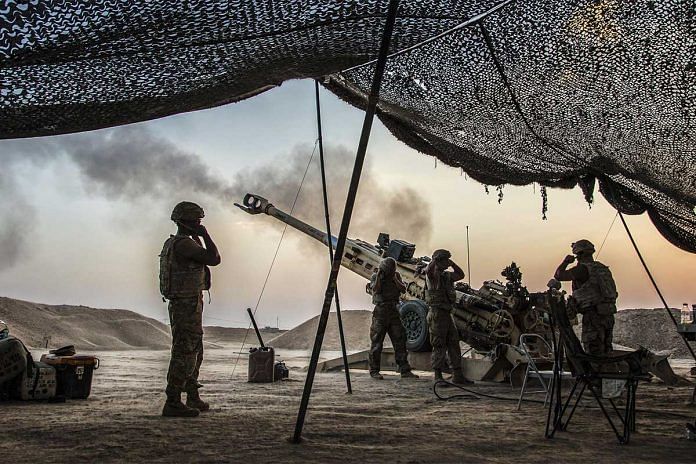America has involved itself in yet another war it doesn’t belong in. The Holocaust exhibition in America reveals shocking details of its complacency. Meanwhile, the Lebanese elections are seeing the emergence of many progressive issues.
America’s secret war in Yemen
In a move, that reminds one of the American involvement in Vietnam, Iraq and Afghanistan, the Trump administration and the Pentagon have apparently misled Americans about its growing military involvement in a war in Yemen.
A war that “we should have nothing to do with,” the New York Times editorialises.
“In the latest expansion of America’s secret wars, about a dozen Army commandos have been on Saudi Arabia’s border with Yemen since late last year.”
The commandos are allegedly helping to locate and destroy missiles and launch sites used by indigenous Houthi rebels in Yemen to attack Saudi cities.
The Pentagon, the New York Times claimed had downplayed American involvement, claiming that aid to Saudi-led campaigns were limited to aircraft refuelling, logistics and intelligence but not combat.
While the Houthis pose no direct threat to the US, they are backed by Iran and America could risk coming into conflict with Iran as a result. Saudi Arabia’s brutal campaign is also alleged to be the world’s worst humanitarian crises and the US could be complicit in this.
“Such significant military decisions require public debate to force presidents and their generals to justify their decisions and be held accountable for the consequences. But checks and balances have eroded since Sept. 11, 2001, as ordinary Americans became indifferent to the country’s endless wars against terrorists.”
‘Americans and the Holocaust’
The new special exhibition at the U.S. Holocaust Memorial titled “Americans and the Holocaust” is one of the most important exhibitions, since the opening of the Holocaust Museum, a quarter of a century ago.
“The exhibit raises disturbing and complex questions about the years leading up to the killing of 6 million Jews and others in the Nazi camps. The answers resonate today,” The Washington Post editorialises.
While it was believed for a long time that the Americans lacked information about Nazi concentration camps, the exhibit has put an end to that myth. It illustrates how news of Nazi persecution of Jews was reported in the local and national news.
Even though a dearth of visual information and information about Hitler’s final solution existed, “there was a sizable gap between what was known and what was done,” the article claims.
The benefit of this exhibition is that, without making any excuses, it probes this lacuna as well as the impact of the Great Depression and xenophobia on the American people.
But not much has changed today. While there are vastly improved tools to discover violence against a whole people: the telling satellite photographs of burned-out Rohingya villages in Burma or of the concentration camps in North Korea.
“To cite those examples, unfortunately, is to acknowledge that our response mechanism has not improved along with our technology,” the article claims.
The remarkable Lebanese elections
The last time elections took place in Lebanon was 2009, when the iPhone was two years old and Barack Obama was six months into office, writes The Economist.
10 years later, decriminalising homosexuality, abolishing child marriage, improving women’s rights and introducing secular laws are some of the main issues cropping up as the new Lebanese generation gears up to vote for the first time on 6 May 2018.
The current Lebanese parliament had voted to extend its mandate three times and the today the Lebanese have had it with the corrupt and ineffective system, the article claims.
As a result, independent candidates backed by civil society are fighting the status quo that has entrenched itself in Lebanon over decades. A total of 595 candidates are competing for 128 seats; some 66 candidates class themselves as independent.
“Regardless of Sunday’s election outcome, the real work will begin after the polling is over. The movement has brought together disparate groups whose interests are closely aligned but not yet unified. To achieve their goals, they will need to find a way to work together in the long term–perhaps with a foot in the door of parliament.”



